
OFFSIDE
PRINCETON STUDIES
IN CULTURAL SOCIOLOGY
 EDITORS
EDITORS 
Paul J. DiMaggio
Michle Lamont
Robert J. Wuthnow
Viviana A. Zelizer
Origins of Democratic Culture: Printing, Petitions,
and the Public Sphere in Early-Modern England
by David Zaret
Bearing Witness: Readers, Writers,
and the Novel in Nigeria
by Wendy Griswold
Gifted Tongues: High School Debate
and Adolescent Culture
by Gary Alan Fine
Offside: Soccer and American Exceptionalism
by Andrei S. Markovits and Steven L. Hellerman
OFFSIDE
SOCCER AND AMERICAN
EXCEPTIONALISM
Andrei S. Markovits and
Steven L. Hellerman
PRINCETON UNIVERSITY PRESS PRINCETON AND OXFORD
Copyright 2001 by Princeton University Press
Published by Princeton University Press, 41 William Street, Princeton, New Jersey 08540
In the United Kingdom: Princeton University Press, 3 Market Place, Woodstock, Oxfordshire OX20 1SY
All Rights Reserved
Library of Congress Cataloging-in-Publication Data
Markovits, Andrei S.
Offside : soccer and American exceptionalism / Andrei S. Markovits and Steven L. Hellerman.
p. cm.
Includes bibliographical references and index.
ISBN 0-691-07446-1 (alk. paper)
ISBN 0-691-07447-X (pbk. : alk. paper)
1. SportsUnited StatesSociological aspects. 2. SoccerSocial aspectsUnited States. I. Hellerman, Steven L., 1958 II. Title
GV706.5.M363 2001
796.3340973dc21 00-061115
This book has been composed in Centaur and Sabon
The paper used in this publication meets the minimum requirements of ANSI/NISO Z39.48-1992 (R1997)
(Permanence of Paper)
www.pup.princeton.edu
Printed in the United States of America
10 9 8 7 6 5 4 3 2 1
10 9 8 7 6 5 4 3 2 1
(Pbk.)
Contents
One
The Argument: Sports As Culture in Industrial SocietiesAmerican Conformities and Exceptions |
Two
The Formation of the American Sport Space: Crowding Out and Other Factors in the Relegation and Marginalization of Soccer |
Three
Soccers Trials and Tribulations: Beginnings, Chaos, Almosts, Obscurity, and Colleges |
Four
The Formation and Rearrangement of the American Sport Space in the Second Half of the Twentieth Century |
Five
From the North American Soccer League to Major League Soccer |
Six
The World Cup in the United States |
Seven
The Coverage of World Cup 98 by the American Media and the Tournaments Reception by the American Public |
Preface
As so often in my life, the lecture trip in June 1986 once again high-lighted for me perhaps the single most essential and visible hiatus in the public sphere and cultural interest of American and European males who constituted my world on either side of the Atlantic. Part of the trip involved my job as a lecturer to well over one hundred American college alumni and alumnae on a boat that journeyed down the Danube from Vienna to the Black Sea. In addition to delivering daily lectures on the politics, society, and culture of the region we traversed, my upstairs and daytime life on the boat consisted of discussing the then ongoing NBA finals between the Boston Celtics and the Houston Rockets, a topic of such great interest among many male passengers of the cruise that we spent the better time of our day-leave in Budapest desperately trying to find a copy of the most recent International Herald Tribune so as to be better apprised of the latest events in the series. At night my world changed entirely. I was the only passenger to join the ships crew of Russian, Ukrainian, Bulgarian, and Austrian men in the downstairs section of the boat to watch one of the nightly soccer games broadcast from the World Cup in Mexico via Eurovision and commented upon in the language of the country that our boat happened to be traversing at the time. On this trip I found myself deeply involved in two worlds that in some ways were so similar, in that they both followed sports events centered on competitive team sports with their requisite identities, histories, legacies, and iconographies. Above all, both worlds exhibited interests and passions that were visible and tangible, and that had been nurtured for years. For both worlds, the actual eventsthe NBA finals for the American passengers, the World Cup tournament for the European crewwere merely acute and current manifestations of cultural acquisitions that formed important ingredients of the identities of their respective observers. Thus, for most American followers of the Celtics-Rockets series, the passion of following the series via the sports pages of the International Herald Tribune and the hope of catching a glimpse of some highlights on Belgrade televisions sports news was part of a much larger package, containing a general interest in basketball and a particular awareness of the importance of the NBA finals in the American sports scene as a whole. Talking sportsin this case basketballwas clearly an integral part of male American culture. Same with the Europeans and their passion for the World Cup, underlined by the fact that nightly viewership in the boats downstairs section did not vary according to the identity of the teams in the games being broadcast. To be sure, passions were higher when a team close to the viewers hearts participated in a game, but viewership hardly diminished when a match between, say, two far-away Latin American contestants was aired by Bulgarian or Romanian television in languages often not understood by many of the viewers, a fact that did not detract anything from the overall interest in the event. Just as talking basketball was an integral, indeed important, part of their culture for the American male passengers, so talking soccer was to the boats multinational European crew.
Despite these obvious similarities and affinities, these worlds could not have been more different from each other. Indeed, in terms of the contents of their respective passions, they had nothing to say to each other. As such, I had yet again witnessed something that had baffled me all my life. Having been brought up completely biculturally, I had noticed one major and consistent hiatus between my American and European male friends: the world of sports. Even totally Eurocentric and Europhile American friends and colleagues in my milieu who are deeply steeped in the latest Parisian debates on culture and politics, relish reading Ernst Bloch, Walter Benjamin, and Jrgen Habermas, and much prefer most things European to American, find themselves following American sports (provided, of course, they are sports fans). And the same pertains vice versa: Among my European colleagues who have become academic experts on the United States and the few who happen to love this countrythere are only a handful of European intellectuals who fit this billvery few, if any, have abandoned their passion for and loyalty to soccer and replaced it with an equivalent knowledge of and affect for any of the American team sports. I could never reconcile my own two worlds of, on the one hand, knowing the names of every player on the Hungarian World Cup team of 1954 and every national soccer champion in Romania, Hungary, Austria, Germany, England, and Italy since 1950, and on the other hand, instantly recognizing the historical significance, and according the proper awe, to such American icons as the 1927 Yankees, the Boston Celtics of the 1960s, and the Green Bay Packers. The content of my conversations on either side of the Atlantic was always different, yet their function, form, role, and substance were surprisingly similar, if not indeed identical. The milieus were virtually the same, yet my experiences in them were mutually exclusive. Thus, in deciding to research soccers relationship to the United States and American culture I embarked on a highly autobiographical venture.
Next page
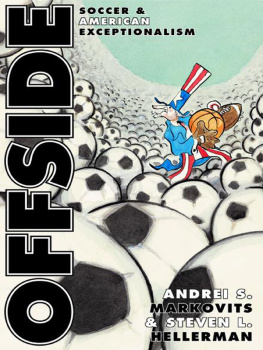
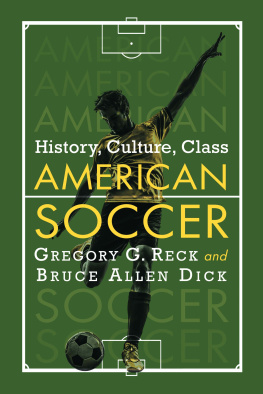
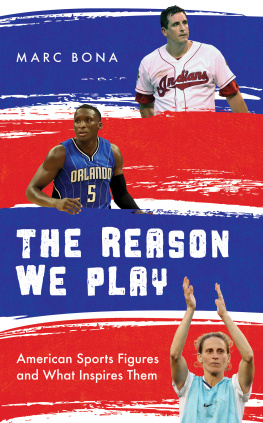

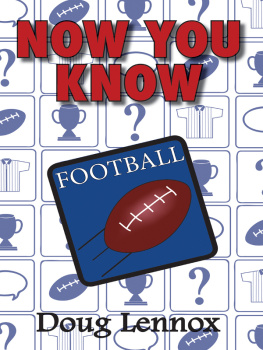
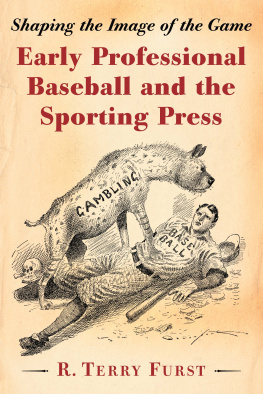
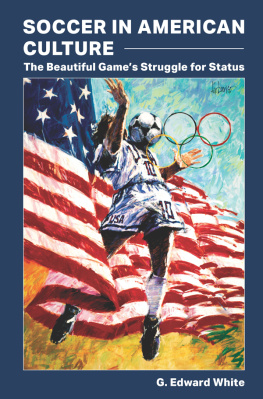
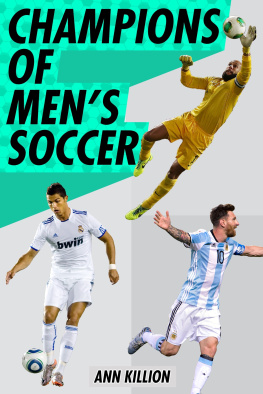

 EDITORS
EDITORS